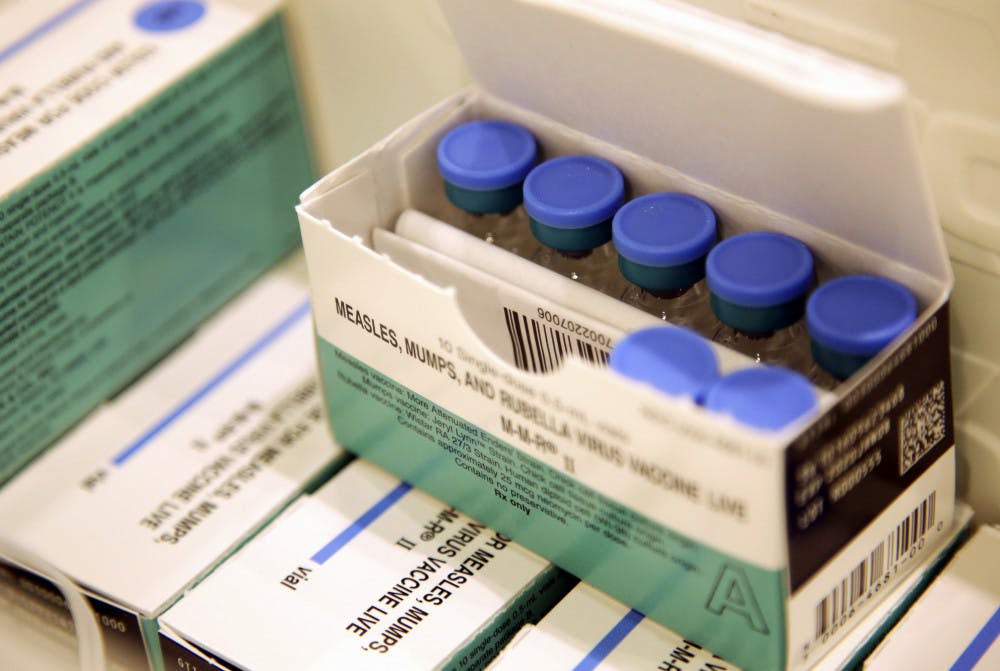As health experts predict a severe flu season in the U.S., Alachua County faces a shortage in a popular nasal flu vaccine, which could put elementary schoolers at risk.
Due to a shortage in the national supply of FluMist, Alachua County will only receive one-third of the FluMist doses the county requested, said Paul Myers, the administrator for the Florida Department of Health in Alachua County. The shortage was caused by manufacturing constraints experienced by AstraZeneca, the company that produces FluMist.
The shortage has forced Control Flu, a program that provides free flu vaccinations to pre-K through 12th grade students in Alachua County, to reserve the limited number of FluMists for elementary school students, Myers said. Students in middle and high school will only receive traditional flu shots.
Using FluMist, which administers the flu vaccine as a nasal spray, increases the number of students who get vaccinated because kids are less scared of the no-needle option, Myers said.
Efforts to eliminate flu outbreaks mainly focus on children because they shed more flu viruses for longer periods of time than adults do, and young immune systems have not been exposed to the virus as much as adult immune systems usually have, Myers said.
“The only thing predictable about flu season is its unpredictability,” Myers said. “Getting a flu vaccine, wherever you get it and whatever kind you get, that is the primary means of preventing infection.”
During the 2016-2017 and 2017-2018 flu seasons, the Centers for Disease Control and Prevention discontinued FluMist after data showed it was inefficient. In 2016-2017, when FluMist was pulled off the shelves, there was a 40 percent overall decline in the vaccination rate for students in Alachua County, according to a study published by UF Clinical Associate professor Kathleen Ryan.
Jerne Shapiro, a UF epidemiology lecturer and the county’s former epidemiologist, said a typical flu season lasts from the end of October to April at the latest. She said ideally everyone should be vaccinated by November before the peak of flu season.
Children, adults over 65 and people with weakened immune systems are at a higher risk of contracting the flu and potentially dying than the general population, Shapiro said.
This year is expected to be a more intense flu season than normal, Shapiro said. Australia had its worst flu season in recent years this past winter. As its climate is similar to Florida’s, Australia’s flu season usually foreshadows what the Florida flu season will be like, she said.
“Because of the potential that it has to cause a very large impact, both in making people sick and mortality, we really track this and invest a lot of our public health resources into this particular disease,” she said.
FILE- In this March 27, 2019, file photo, vials of measles, mumps and rubella vaccine sit in a cooler at the Rockland County Health Department in Pomona, N.Y. Research released on Thursday, Oct. 31, 2019, shows yet another reason to vaccinate children against measles. After a bout of measles, youngsters are more vulnerable to other germs _ from chickenpox to strep _ that they once could fend off. (AP Photo/Seth Wenig, File)






